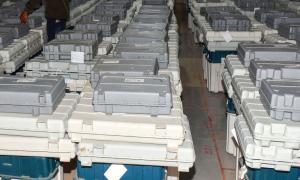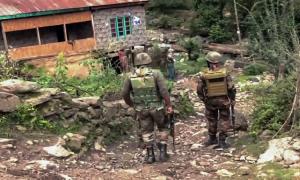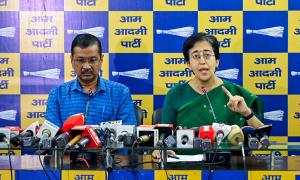The World Trade and Development Report 2003, brought out by the Research and Information System for The Non-Aligned and Other Developing Countries, has sought greater transparency in the decision making at the World Trade Organisation to check 'arm-twisting' of poor countries by the developed world.
"The general perception is that the decision making process at the WTO is non-transparent and not inclusive and the will of handful of powerful countries is imposed on entire membership in the name of consensus," the report, 'Cancun and Beyond' released today said.
"The decision making process in the WTO clearly needs a reform for its long-term sustainability," it added.
A democratic system of decision making based on secret voting and decision based on majority would serve the Organisation better and make it more participatory and transparent, the RIS report said.
RIS is advising the commerce ministry in formulating its strategy for negotiating industrial tariffs and investment.
The report also recommended the establishment of a WTO watchdog of developing countries.
"In the interest of building a fair and just world trading system, developed countries should create a trust fund for maintaining the WTO watchdog," it said.
While releasing the report Planning Commission Deputy Chairman KC Pant said the Uruguay Round agreements left developing countries with a feeling that developed world had extracted greater gains in terms of market access.
He also said that the developed nations have been slow in delivering the promises of additional market access in the areas of agriculture, textiles and clothing and movement of natural persons.
"Indeed, the overall magnitude of agricultural subsidies in developed countries has actually increased; the only thing that changed was their colour," Pant said.
Pointing to segmentation of subsidies in various boxes.
The abolition of quotas under textiles and garment was back-loaded to the end so much that only 20 per cent of the exports that were subject to quota restrictions have been liberalised in the past seven years, he added.
The RIS report said it was necessary to review the asymmetries that have crept into the trading system and the Cancun ministerial, starting next week, provided an opportunity to WTO members to seek a redressal of the emerging asymmetries in the world trading system before moving forward to expand its agenda.
On the Singapore issues, comprising investment, competition policy, trade facilitation and transparency in government procurement, developing countries from different parts of the world have expressed their reservations on the negotiating mandate in the WTO, Pant said and called for a thorough review of the pros and cons before commencing negotiations.







More from rediff